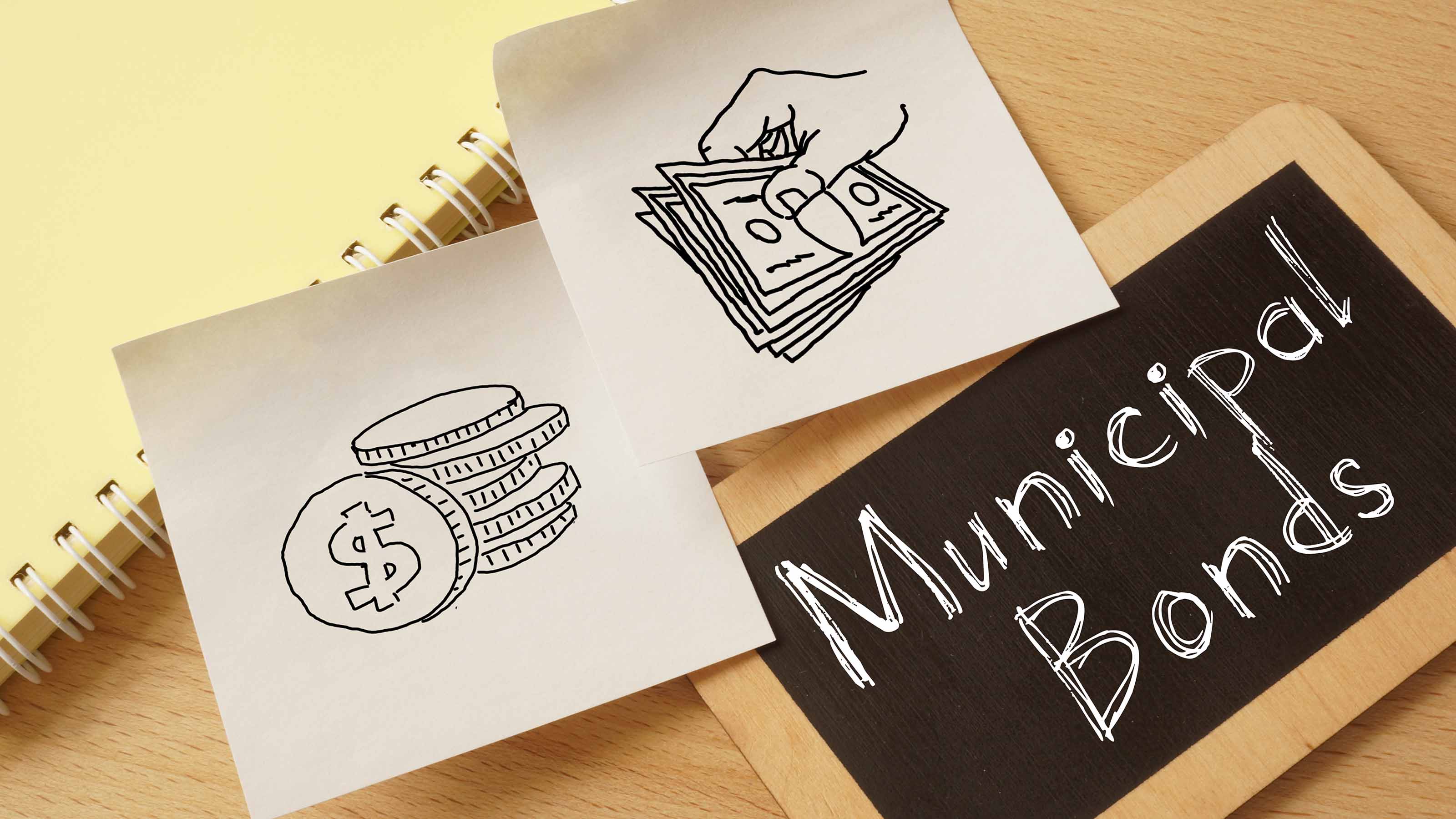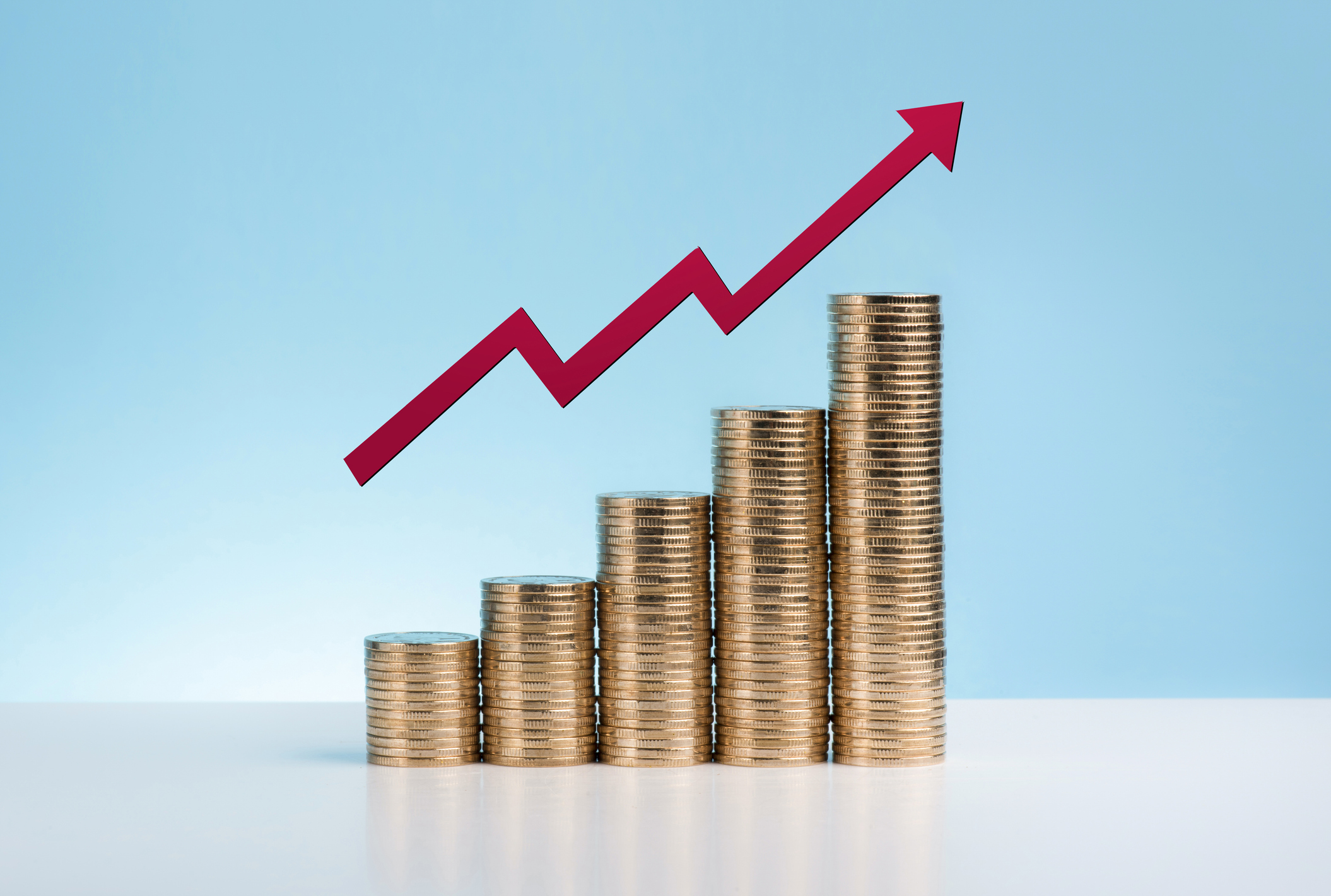Dump Your Bonds? No Way
This is shaping up as the worst year for the fixed-income markets in more than a decade. Still, bonds belong in most portfolios.

Profit and prosper with the best of Kiplinger's advice on investing, taxes, retirement, personal finance and much more. Delivered daily. Enter your email in the box and click Sign Me Up.
You are now subscribed
Your newsletter sign-up was successful
Want to add more newsletters?

Delivered daily
Kiplinger Today
Profit and prosper with the best of Kiplinger's advice on investing, taxes, retirement, personal finance and much more delivered daily. Smart money moves start here.

Sent five days a week
Kiplinger A Step Ahead
Get practical help to make better financial decisions in your everyday life, from spending to savings on top deals.

Delivered daily
Kiplinger Closing Bell
Get today's biggest financial and investing headlines delivered to your inbox every day the U.S. stock market is open.

Sent twice a week
Kiplinger Adviser Intel
Financial pros across the country share best practices and fresh tactics to preserve and grow your wealth.

Delivered weekly
Kiplinger Tax Tips
Trim your federal and state tax bills with practical tax-planning and tax-cutting strategies.

Sent twice a week
Kiplinger Retirement Tips
Your twice-a-week guide to planning and enjoying a financially secure and richly rewarding retirement

Sent bimonthly.
Kiplinger Adviser Angle
Insights for advisers, wealth managers and other financial professionals.

Sent twice a week
Kiplinger Investing Weekly
Your twice-a-week roundup of promising stocks, funds, companies and industries you should consider, ones you should avoid, and why.

Sent weekly for six weeks
Kiplinger Invest for Retirement
Your step-by-step six-part series on how to invest for retirement, from devising a successful strategy to exactly which investments to choose.
Some bond-fund managers are telling me that they are more enthusiastic about stocks than about the stuff they get paid to invest in. Their reasons vary, but generally it comes down to this: The economy is improving, and that should translate into higher stock prices. But a stronger economy is also causing an uptick in interest rates, and because bond prices and rates move in the opposite direction, this is shaping up as a lousy year for most segments of the fixed-income market.
So far this year, Treasuries, municipals, investment-grade corporates and mortgage securities have all registered negative total returns. That's likely to still be the score at year-end. Junk bonds continue to show a small gain, but that, too, might fade into a loss by the time we ring in the new year.
Following a three-decade-long bull market in bonds, I can understand that you might be shocked by this year's losses. Although most bonds sank in 2008 (U.S. government debt being the notable exception), the last year the Treasury-heavy Barclays U.S. Aggregate Bond index ended in the red was 1999, and the loss was a mere 0.8%. So it's reasonable to ask, as some of my readers are, if it still makes sense to keep bonds or bond funds if it looks like we might have another year or two of depreciation.
From just $107.88 $24.99 for Kiplinger Personal Finance
Become a smarter, better informed investor. Subscribe from just $107.88 $24.99, plus get up to 4 Special Issues

Sign up for Kiplinger’s Free Newsletters
Profit and prosper with the best of expert advice on investing, taxes, retirement, personal finance and more - straight to your e-mail.
Profit and prosper with the best of expert advice - straight to your e-mail.
My advice depends on whether you want income or total return, the length of your time horizon, and your alternatives for the money. But, to end any suspense, I will say this: Quitting bonds altogether is wrong. There are two exceptions. One is if you are so wealthy that you have no problem earning next-to-nothing in a bank account or T-bills. The second is if you are young and just starting to save for retirement. In that case, bonds can wait. Instead, I'd recommend that you build a portfolio with stock funds in the Kiplinger 25 or use a fund that tracks Standard & Poor's 500-stock index.
But if you're reading this, I suspect you aren't a kid. You're probably so bummed by the recent downturn that you're wondering if it's time to shift to CDs, despite their puny yields. Here's why you should be less bummed about bonds and why you should stand pat the rest of this year.The worst appears to be over. Most of the bond market's losses this year occurred from early May through early July. Since then, prices and yields have stabilized, and I see no reason to think the nasty losses will resume.
Reliable income. Prices may have fallen, but nearly all bond funds and individual bonds continue to pay interest. If Detroit's bankruptcy filing leaves you queasy, restrict your muni investments to bonds secured by revenues from essential services or the general obligations of state governments and wealthy suburbs and counties. Sell any others. Or trust that good muni fund managers will be fussy about the safety of their picks.
Knee-jerk selling creates opportunities. This is a moment when a flexible, actively managed fund can be worth its cost. Madcap sellers have created a raft of bargains that are ripe for skilled buyers, many of whom run funds. "In the next year or two, we're going to find ways to make a little bit of money a lot of times," says Rick Rieder, whose BlackRock Strategic Income Opportunities Fund can invest in any part of the bond market. Unfortunately, his fund levies a sales charge. Two no-load, go-anywhere funds in the Kip 25 are Metropolitan West Unconstrained Bond (symbol MWCRX) and Osterweis Strategic Income (OSTIX).
Don't join the knee-jerk sellers. Every so often, a herd of traders will sell good bonds (and stocks) to protest the words or actions of Congress or the Federal Reserve Board. If you sell during these trading spasms, you'll probably end up as sorry as all those wrongheaded people who bailed out of stocks in June.
Jeff Kosnett is a senior editor at Kiplinger’s Personal Finance.
Profit and prosper with the best of Kiplinger's advice on investing, taxes, retirement, personal finance and much more. Delivered daily. Enter your email in the box and click Sign Me Up.

Kosnett is the editor of Kiplinger Investing for Income and writes the "Cash in Hand" column for Kiplinger Personal Finance. He is an income-investing expert who covers bonds, real estate investment trusts, oil and gas income deals, dividend stocks and anything else that pays interest and dividends. He joined Kiplinger in 1981 after six years in newspapers, including the Baltimore Sun. He is a 1976 journalism graduate from the Medill School at Northwestern University and completed an executive program at the Carnegie-Mellon University business school in 1978.
-
 Dow Adds 1,206 Points to Top 50,000: Stock Market Today
Dow Adds 1,206 Points to Top 50,000: Stock Market TodayThe S&P 500 and Nasdaq also had strong finishes to a volatile week, with beaten-down tech stocks outperforming.
-
 Ask the Tax Editor: Federal Income Tax Deductions
Ask the Tax Editor: Federal Income Tax DeductionsAsk the Editor In this week's Ask the Editor Q&A, Joy Taylor answers questions on federal income tax deductions
-
 States With No-Fault Car Insurance Laws (and How No-Fault Car Insurance Works)
States With No-Fault Car Insurance Laws (and How No-Fault Car Insurance Works)A breakdown of the confusing rules around no-fault car insurance in every state where it exists.
-
 What Fed Rate Cuts Mean For Fixed-Income Investors
What Fed Rate Cuts Mean For Fixed-Income InvestorsThe Fed's rate-cutting campaign has the fixed-income market set for an encore of Q4 2024.
-
 The Most Tax-Friendly States for Investing in 2025 (Hint: There Are Two)
The Most Tax-Friendly States for Investing in 2025 (Hint: There Are Two)State Taxes Living in one of these places could lower your 2025 investment taxes — especially if you invest in real estate.
-
 The Final Countdown for Retirees with Investment Income
The Final Countdown for Retirees with Investment IncomeRetirement Tax Don’t assume Social Security withholding is enough. Some retirement income may require a quarterly estimated tax payment by the September 15 deadline.
-
 Dividends Are in a Rut
Dividends Are in a RutDividends may be going through a rough patch, but income investors should exercise patience.
-
 Why Investors Needn't Worry About U.S. Credit Downgrade
Why Investors Needn't Worry About U.S. Credit DowngradeFitch Ratings The United States saw its credit rating downgraded for just the second time in history, but experts aren't worried about the long-term damage to stocks.
-
 Municipal Bonds Stand Firm
Municipal Bonds Stand FirmIf you have the cash to invest, municipal bonds are a worthy alternative to CDs or Treasuries – even as they stare down credit-market Armageddon.
-
 Is High-Yield Savings Account Interest Taxable?
Is High-Yield Savings Account Interest Taxable?Savings Accounts Think a high-yield savings account is a good idea? Don’t forget taxes on savings account interest.
-
 High Yields From High-Rate Lenders
High Yields From High-Rate LendersInvestors seeking out high yields can find them in high-rate lenders, non-bank lenders and a few financial REITs.